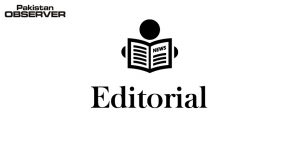FINANCE Minister Miftah Ismail on Thursday unveiled the Economic Survey of Pakistan 2021-22, a pre-budget document, showing growth hitting 6% against the target of 4.8% in the outgoing fiscal year.
However, the country’s growth story — having rebounded from pandemic (when the economy contracted in FY20) to posting growth of 5.74pc last year and maintaining a V-shaped recovery by posting GDP growth of 5.97pc this year — was dampened in the face of glaring macro-economic imbalances, suggesting that this growth is unsustainable.
The 6% growth was really impressive and reflects positively on the overall growth strategy of the PTI Government prompting party Chairman Imran Khan to say that the data about the survey clearly indicated Pakistan was prospering on the economic front during his government.
He pointed out that the PTI government had put the country on the road to economic progress and prosperity during the last two years and the country was heading towards a positive trajectory.
It is said that the higher growth is mainly due to rebasing of the national accounts and does not reflect the ground realities but the PTI Government did take measures like liberal incentives for the housing and construction sector which boomed during its rule and helped stimulate overall growth in the national economy.
The overall growth came on the back of 4.40pc growth in Agriculture, 7.19pc growth in Industries, and 6.19pc growth in Services — meaning that all three major sectors surpassed their targets of 3.5pc, 6.5pc and4.7pc, respectively.
According to the survey, even though the country surpassed overall growth expectations as well as sector-wise growth targets, “underlying macro-economic imbalances and associated domestic and international risks have dampened celebrations”.
Current account deficit, budget deficit, investment and savings ratio in the percentage of GDP missed out the desired target for the outgoing fiscal year.
The size of the country’s economy touched $383 billion and per capita income stood at $1798 in 2021-22.
One of the major problems of the economy is widening trade deficit which is eating up hard earned resources.
Imports during 2021-22 increased by 48% as compared to the last fiscal year, while the exports also moved up but the trade deficit stood at alarming $45 billion.
It should be a matter of concern for our policy makers that in the past exports were around half of the imports but the ratio now stands at 40:60, which means Pakistan could only finance 40% of its imports through exports and for the rest, it had to rely on remittances or loans.
It is not a viable approach to spend loaned foreign exchange on import of luxury items and, therefore, there is an urgent need to review the overall policy and place a complete ban on import of luxury items.
The Government should focus on exports and that in turn requires production surplus which cannot be expected in the present choked environment where load-shedding is once again hitting the economy and whole sale increase in prices of the POL products and electricity tariff are pushing the cost of production further up, making our exports uncompetitive.
The new budget also contains reform measures in line with the demands being made by the International Monetary Fund (IMF) and it has to be seen how the economy would be stimulated while implementing hard and difficult measures.
No doubt, the reforms would enable the country to receive stalled funds from the IMF besides extension in deposits by Saudi Arabia and China but all this shows an increased reliance on foreign aid to run even normal day-to-day affairs of the country.
This situation is not sustainable as the unbearable burden of foreign loans could push the country towards the spectre of default and, therefore, all political parties should sit together and chalk out an agreed economic framework aimed at mobilizing internal resources and getting ridding of external debt.
Miftah Ismail has claimed that the government’s difficult decisions have averted the default and the economy is now on the path of stability and will soon see stable growth wherein there would be no current account deficit and balance of payments problem.
One hopes these remarks would not turn out to be a rosy picture of the future but practical measures would be taken to reach this destination.










